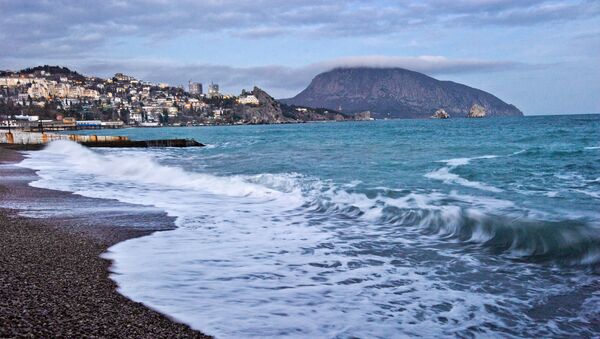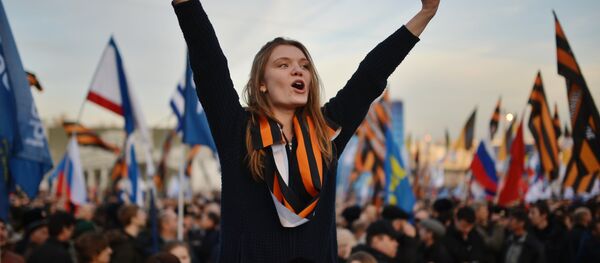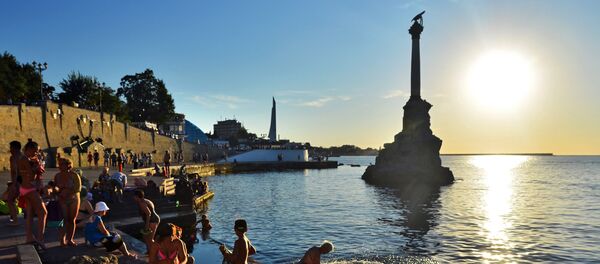Kåre Willoch stated that it was unrealistic that Crimea would ever return to Ukraine, urged Europe to drop anti-Russian sanctions as unmistakably harmful for the both parties and even stressed NATO was responsiblefor the recent standoff between Russia and the West.
"NATO's insinuations that Ukraine could possibly become a member state was the beginning of an entirely superfluous sharpening of contradictions between Russia and the West," Kåre Willoch said, as quoted by the Norwegian tabloid Verdens Gang.
Furthermore, Willoch suggested that it is unlikely that Crimea would return to Ukraine after its re-unification with Russia in 2014. Consequently, it is improbable that the EU's sanctions against Russia would somehow force Moscow to change its stance on the Crimean issue.
"I cannot see any realism behind expectations that Crimea will return to Ukraine. Moreover, Crimeans themselves have not expressed any desire for coming back," Kåre Willoch said.
"The whole of Europe will be better off if Russia gets better financially. The economy is reciprocal. Besides, it is easier to keep calm in a country that feels well," Willoch told Verdens Gang.
Finally, Kåre Willoch ventured that NATO and the West are clearly exaggerating the threat from Russia and use it as a pretext for rearmament.
"Of course, no one is interested in having defensive gaps. However, I fail to see any direct indication that Russia has become much more dangerous, Willoch said.
Kåre Willoch is a Conservative Party veteran. He served as Minister of Trade, President of the Nordic Council and Prime Minister of Norway, as well as chaired the Conservative party. In contrast, Norway's incumbent Prime Minister and Conservative leader Erna Solberg has repeatedly spoken in favor of anti-Russian sanctions and regards Crimea's re-unification with Russia as "annexation."
Ironically, a train of thought similar to Willoch's was pursued by another Norwegian veteran politician, yet from rival Labor Party. In January, Thorvald Stoltenberg, former Defense and Foreign Minister and the father of former Prime Minister and present-day NATO Secretary General Jens Stoltenberg, confronted the Western sanctions against Russia after the Ukrainian crisis and ventured that they may drive Moscow further away from the West. In his book Breakfast With Thorvald, 85-year-old Stoltenberg Sr. cited previous examples of unsuccessful sanctions against countries like Cuba, Iraq and Serbia, Verdens Gang reported.
Thorvald Stoltenberg — father of #NATO's SecGen — worked in refugee camps after 1956's #HungarianRevolution & helped some move to Norway. pic.twitter.com/yVY7rvTI84
— Dylan P. White (@dylanpwhite) October 24, 2016
Never miss a story again — sign up to our Telegram channel and we'll keep you up to speed!




